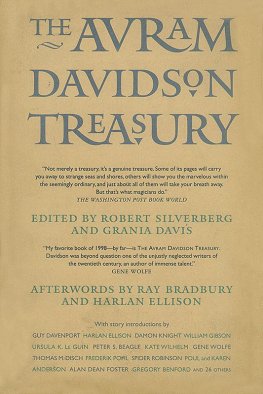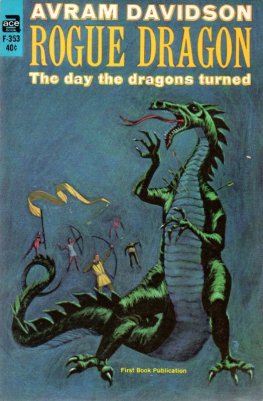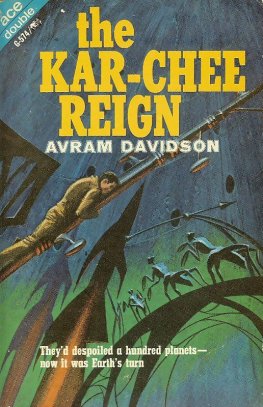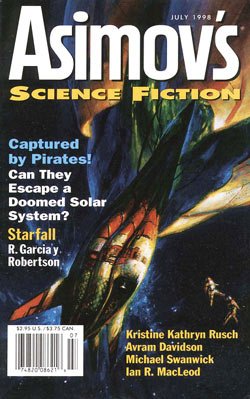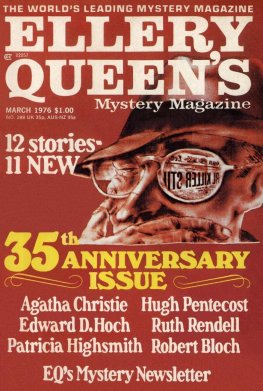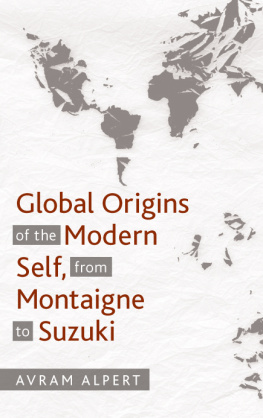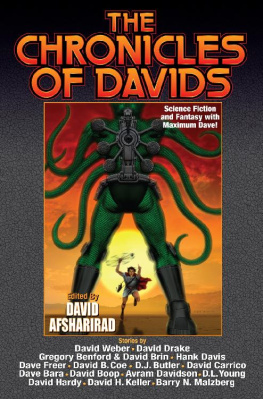
The Avram Davidson treasury: a tribute collection
edited by Robert Silverberg & Grania Davis
To Puff, Herman, and Mudge
Who Made Us Laugh
and
To Seth Davis, Dr. Stephen Davis, and Ethan Davidson
The Mighty Copy-Shop Crew
Foreword
OH, AVRAM, AVRAM, WHAT A WONDER YOU WERE!
by
Robert Silverberg
HE WAS A SMALLISH, rumpled, bearded man who had the look of a rabbi for some down-at-the-heels inner-city Orthodox congregation. He had a rabbis arcane erudition, a rabbis insight into human foibles, a rabbis twinkling avuncular charm, a rabbis amiable self-mocking modesty; and, of course, a rabbis profound faith in Judaism, at least until, to my amazement if not his own, he gave up all his obsessive observance of the myriad Jewish rules and regulations and converted late in life to an exotic Japanese cult called Tenrikyo. He was also one of the finest short-story writers ever to use the English language, as the fortunate readers of this book are about to discover, or to rediscover, whichever is the case.
I cant remember when or precisely where I met him, though it had to have been in New York City somewhere between 1956 and 1961. During those years I lived in a spacious and pleasant apartment on the fourth floor of a building on Manhattans Upper West Side, and I distinctly recall Avrams coming to visit me on a Friday night the eve of the Jewish Sabbath when, as I had forgotten at the time, it is forbidden for Orthodox Jews to perform any sort of mechanical labor. The prohibition extends even unto pressing a button to summon an elevator; and so Avram diligently walked up the four flights of stairs to my apartment that evening, and walked down again when he left, which struck me Jewish also, but not particularly observant as a charming but bizarre adherence to Talmudic dogma.
But I think we must have met even before that, for why would I have invited an utter stranger to my apartment? I cant tell you where that first Davidson-Silverberg encounter took place, though my memory for such things normally is extraordinarily precise. And, oddly, considering the rare precision of Avrams own memory, he came to forget the details of our first meeting also, as I know from the evidence of a letter from him dated July 17, 1971, in which Avram wrote, apropos of nothing in particular, We you and I first met in an apt in Mannahattoe; but whose? Fit would help you to recall, you had been talking about a story youd just then written, and on this planet the people have no sexual parts, theyre all built like dolls Hey! a great title! All Built Like Dolls. But you can have it if you like.
I quote this not only to illustrate that Avram was capable of forgetting things occasionally too, but also to demonstrate certain notable idiosyncracies of the man and of his style. Consider his use of the archaic term Mannahattoe for Manhattanthe original uncorrupted Native American name for that island in New York Harbor, which the Dutch twisted into the form used today, and which Avram of course knew, paying me the compliment of expecting that I would know it too. (I did.) Note also his genial colloquialism Fit for If it, and the borrowing from his friend and colleague Philip K. Dick in his use of apt for apartment, and the generosity implicit in his offering me, without strings, the story title he had plucked from my account of my own recent story. (A story of which, by the way, I have no recollection whatever; but all this was close to forty years ago, and there are a lot of stories I wrote then that I no longer remember, nor do I want to.)
Anyway, I definitely did meet Avram in New York City somewhere in the 1950s, and thereafter we maintained a pleasant acquaintanceship for decades. We were not precisely close friends, with all the intimate sharing of woes and triumphs and confessions that that term implies in my mind, but certainly we were friends of some sort, and beyond doubt we maintained a warm collegial relationship, fellow toilers in the vineyard of letters, always ready to exchange tidbits of professional information with each other or to query each other on some point of esoteric knowledge. (I quote from a typical letter from him, under date of Dec 8 1984: As I know that you have a complete collection of EVERYTHING, and that there is nothing you like better than LOOKING THINGS UP to please a friend, so I am asking you, please, to find out: Who wrote the Galaxy Bookshelf review column in #6 vol. 39
In the days when we both lived in New York, we saw each other most frequently at the monthly gatherings of the local science-fiction-writers organization, a pleasant casual group called the Hydra Club, or at parties held at various writers homes, such as at the one in (I believe) 1961, given by Daniel Keyes of Flowers for Algernon fame, at which Avram proudly introduced us to his (literally) blushing teenage bride Grania, with whom I would sustain a friendship extending decades beyond her marriage to Avram, and who is now my esteemed co-editor on this project. And often we would meet and break booze together at some science-fiction convention, where Avram was always a welcome sight to see, since he was in the habit of carrying a bag of excellent New York bagels around with him to distribute to his friends. (One time, also, he had a pocketful of coproliths fossilized dinosaur turds which he distributed similarly to those he knew would appreciate them. I cherish mine to this day.)
Avram entered New York s-f social circles with an instantly lofty literary reputation. Since 1946 his work had been appearing in places like Orthodox Jewish Life Magazine, but we knew nothing of that. However, his first professionally published story, My Boy Friends Name Is Jello (Fantasy & Science Fiction, July 1954), though only a few pages long, announced immediately that a quirky, utterly original writer, as distinctive in his way as Ray Bradbury was in his, had arrived in our field. The following year the same magazine offered the similarly brief and similarly impressive The Golem, and then, in 1956 and 1957 and 1958, came a whole flurry of concise and brilliant little Davidson tales in nearly all the science-fiction magazines at once.
The New York s-f community, which at that time included (if you count its suburban branch in Milford, Pennsylvania) virtually all the movers and shakers of the field, was awed and captivated by the prolific performance of the kindly, charming, formidably learned, and rather peculiar little man who had taken up residence in its midst. He was, at the same time, contributing dazzling mystery stories to the premier mystery magazine of the day, Ellery Queens. Plainly there was a prodigious writer here. The author of Help! I Am Dr. Morris Goldpepper (Galaxy, July 1957) thats the one about the Jewish dentist who sends messages back from an alien planet, where he is being held captive, via dental fixtures could be nothing other than a genius. The author of Or All the Seas With Oysters (Galaxy, May 1958), the story of alien residents of Earth who disguise themselves as safety pins in their pupal form and become coat-hangers when they reach the larval stage, must surely be a man of distinctly original mind. (So original, indeed, that he could conceive of pupas hatching into larvae, a stunning reversal of the usual order of things.) Not that the only thing he wrote was high whimsy; for there was the dark and brooding Now Let Us Sleep (Venture, September 1957) and the sinister Dunsanyesque fantasy Dagon (Fantasy & Science Fiction, October 1959) and the quietly passionate Or the Grasses Grow (
Next page
